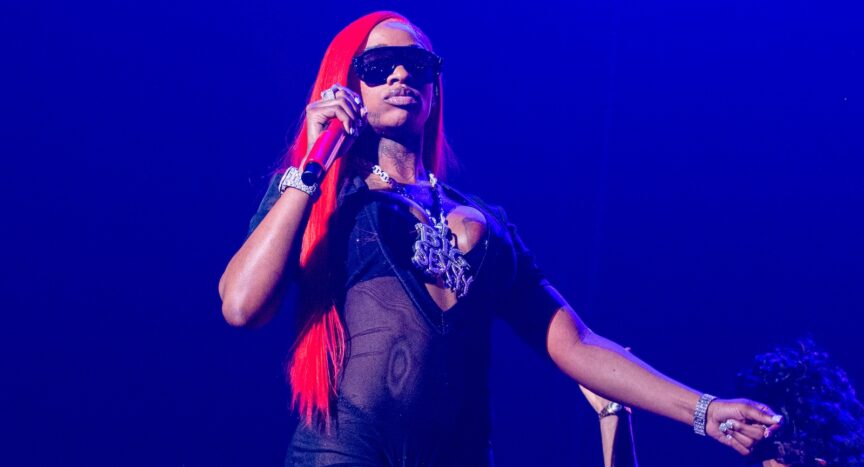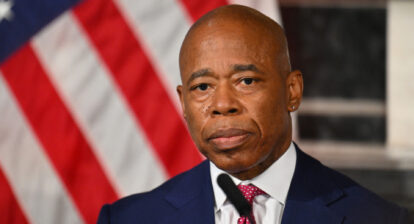“Respect your elders” is a time-honored saying that echoes through generations in the Black community. It’s a pillar of our culture, passed down as a reminder to honor the wisdom of those who came before us. But for many Black millennials and Gen Z, that phrase has taken on a more nuanced meaning. Respect is no longer automatic—it’s earned, and it cuts both ways, especially when elders don’t extend the same courtesy to younger generations.
This generational tension came to light the day after MLK Day when rapper Sexxy Red shared a fan-made AI image of herself dancing with Dr. Martin Luther King Jr. on her social media. To some, it was lighthearted internet humor; to others, it crossed the line into blatant disrespect. Among those who took issue was Bernice King, MLK’s daughter, who took to X and did not hold back, calling the image “distasteful, dishonoring, deplorable and disrespectful.”
This is intentionally distasteful, dishonoring, deplorable, and disrespectful to my family and my father, who is not here to respond himself because he was assassinated for working for your civil and human rights and to end war and poverty.
Please delete. https://t.co/g1S726qSMf
— Be A King (@BerniceKing) January 21, 2025
Sexxy Red later issued an apology for sharing the image, acknowledging the impact it had and expressing regret for not recognizing how it might offend others, especially those who hold Dr. King’s legacy close to their hearts. Her apology wasn’t just an act of accountability—it opened the door for a deeper conversation about how younger generations engage with history and cultural icons in the digital age.
You ain’t wrong, never meant to disrespect your family my apologies. Just resposted something I saw that I thought was innocent
https://t.co/3rGQreJNOT
— Sexyy Red (@SexyyRed314_) January 22, 2025
This situation highlights a deeper conversation about respect, accountability and bridging generational divides. Bernice King clarified why the AI-generated image was a problem, explaining that it wasn’t just about protecting her father’s legacy and the larger implications of using AI in ways that trivialize historical figures and moments. She emphasized the importance of honoring the dignity and respect that Dr. King’s legacy deserves rather than reducing it to internet fodder. On the other hand, Sexxy Red, coming from a different cultural and generational perspective, saw this as an unintentional misstep, not realizing the harm it could cause. But instead of letting the situation spiral, she listened, apologized and acknowledged the impact her actions had. In this moment, two individuals—vastly different in upbringing, background and connection to culture—found a way to have a respectful and teachable exchange. It became an example of how dialogue and accountability can transform a conflict into a moment of growth, reminding us that respect and understanding are bridges that can close even the widest generational gaps.
Thank you for your apology, which I sincerely accept. Please know that it was not my intention that you be denigrated. I value you as a human being.
I hope you understand my concerns about the image. I know that my father has become a bit of a caricature to the world and that…
— Be A King (@BerniceKing) January 22, 2025
This moment presents an opportunity for both generations to reflect. For millennials and Gen Z, it’s a reminder to approach cultural icons like Dr. King with care, understanding the weight of their contributions and the emotions tied to their legacies. For older generations, it’s a chance to see how humor, memes, and internet culture have become tools of expression for younger folks—not necessarily to disrespect, but as a way to connect, even if the delivery doesn’t always land. This moment also demonstrated the power of calling in versus calling out. While calling out can come across as an attempt to embarrass or assert dominance, calling in—like what Bernice ultimately did—seeks to educate and foster mutual respect. Through this exchange, two individuals with vastly different experiences and worldviews showed how respect and accountability can transform a misstep into a teachable moment. It’s a reminder that when we lead with care and an openness to understanding, we can close even the widest generational gaps.
The real lesson here is about finding common ground. Younger generations can learn to balance creativity with respect, and older generations might find it helpful to approach such incidents as teachable moments rather than dismissing them as outright disrespect. Sexxy Red’s apology shows how accountability can be a bridge between the two, reminding us that mistakes can lead to growth when there’s mutual understanding.
At its core, this incident isn’t just about a meme or even Dr. King’s legacy—it’s about the cultural divide between how we honor our past while navigating the present. And maybe, just maybe, this could be the beginning of a dialogue where both sides listen, learn, and build a stronger connection that transcends age and perspective. Because respect—when rooted in understanding—goes both ways.







